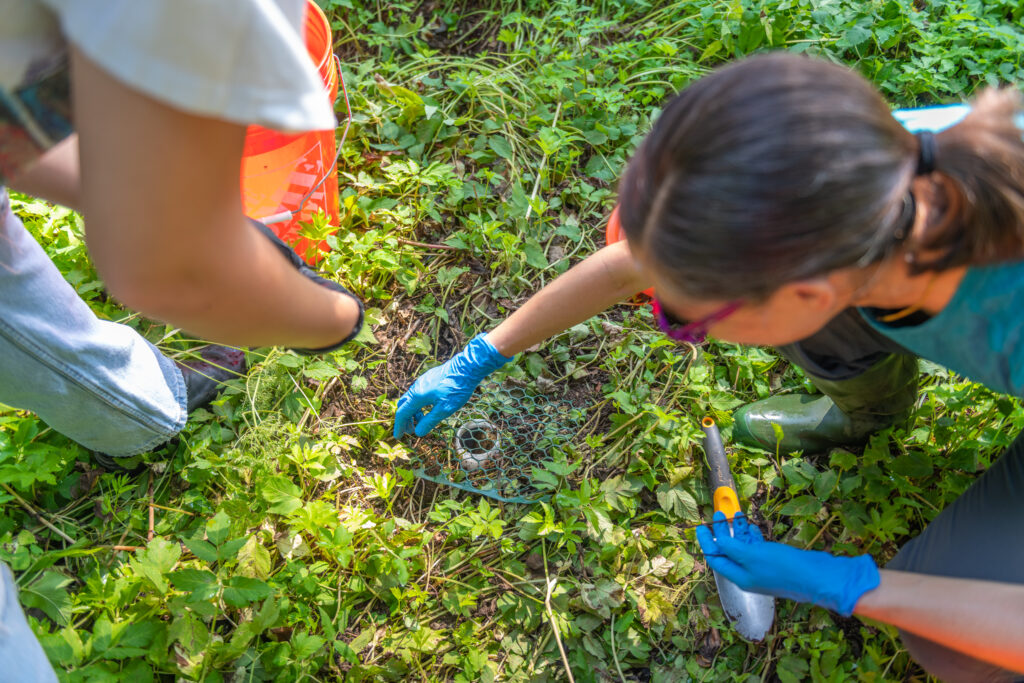
Erin McCullough, a behavioral ecologist who mostly studies sexual selection.
‘I’m interested in how animals compete for mates. I just finished my first year at Clark, so my research is still very much in the development phase. I am currently trying to figure out the diversity of dung beetles around Massachusetts. To do this, my student (Syd Kochensparger) and I have been setting up “pitfall traps” in farms and forests. Dung beetles are important insects because they help degrade dung; they dig holes into the ground which aerates the soil; and they bury dung when they lay their eggs, which helps to bring nutrients down into the soil. Dung beetles are also interesting to study because, in many species, males have big horns that they use in fights with other males to mate with females. I am interested in developing a beetle colony at Clark to study their mating behaviors, but first I’m interested in figuring out who’s here. So far, I’ve found four Onthophagus species in Massachusetts: Onthophagus taurus (which is native to the Mediterranean but was introduced in the 1960s), Onthophagus hecate, Onthophagus tuberculifrons, and Onthophagus orpheus.’
